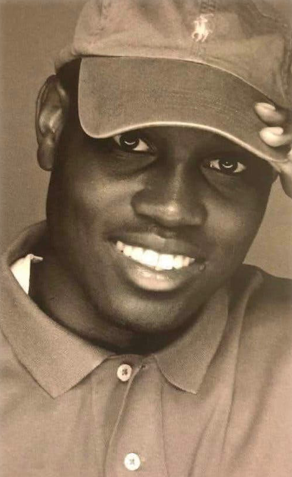Attentiveness: #IRunWithAhmaud

Dr. Scott W. Sunquist
President & Professor of Missiology
 25-year-old Ahmaud Arbery loved to run.
25-year-old Ahmaud Arbery loved to run.
Grief. Tears. Anger. Disbelief.
Like many of us in the past weeks, I have stopped looking for pandemic articles in the news and have turned to the shocking news about Ahmaud Arbery’s last steps…and the public struggle to find justice in this situation.
It is both unbelievable what has happened, yet all too believable that such violence against a black man has happened again. Social change is slow. However, it seems that today little to no positive social change is taking place. In fact, if we are attentive to social trends, the United States seems to becoming less tolerant of blackness, and other people groups.
Our recent history has, once again, given lie to the concept of progressiveness and social evolution. This cold-blooded murder is not the only issue, it is just an eruption of the larger cultural virus of American racism. As Gordon-Conwell student Frank Robinson said, “Not being killed is far too low a standard to call justice—and we have not even attained this. The right to simply not be killed. Justice might look like equal lending, housing, education and employment opportunities, proportionate representation in congress, equal protection under the law, unbiased sentencing….” Evangelicals have seldom used such clear language.
It is time to add the beautiful language of justice and equal opportunity to our language of authority of Scripture; to add civil rights to atonement, and to add advocacy to salvation. Evangelicals have hesitated too often to speak about and live into the very theology we espouse.
We must begin to make this pivot toward a more robust contextual theology by recognizing that Ahmaud Arbery is not an isolated tragedy, but a reflection of our American culture. His tragedy is a signpost that there remains a strong racist element in our nation. This “virus” requires extreme measures. In this case, it is not isolation and social distancing, but engagement and intimacy. For what we are dealing with is more like a pandemic than a rare disease.
Correcting Evangelical blindness is not impossible; in fact, it is at our fingertips every day. The pages of Scripture condemn our laziness and fear of approaching this evil (for that it what it is). More so, the pages of Scripture offer mercy and invite us into faithfulness, justice and love.
It is possible, but we have to lock arms, get on our knees together, repent of our blindness and seek help to read the Bible with our brothers and sisters who have lived this dual life of faithful Bible Christians, uncomfortably in fellowship with racists. Like all theological and ethical rectification, this will require Christian solidarity, patience, and attentiveness.
For Gordon-Conwell, it will mean that we must stand up and be counted. Next, it will mean intentional reading, asking, praying, and then action. That’s right. Evangelicals are known as activists. How wonderful it would be for us to be activists for racial justice. It has happened in the past and it absolutely must happen now.
I think Jesus would be pleased: “Well done, good and faithful servant.”
Note: Christians together can unite at this time around such issues of justice. For an Orthodox reflection on Mr. Arbery’s murder see the “The Brotherhood of Saint Moses the Black.”
SWS
 Scott W. Sunquist, the new President of Gordon-Conwell Theological Seminary, writes a weekly blog, “Attentiveness” which is posted each Monday morning on the Gordon-Conwell web site. He welcomes comments, responses and good ideas.
Scott W. Sunquist, the new President of Gordon-Conwell Theological Seminary, writes a weekly blog, “Attentiveness” which is posted each Monday morning on the Gordon-Conwell web site. He welcomes comments, responses and good ideas.